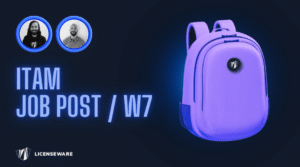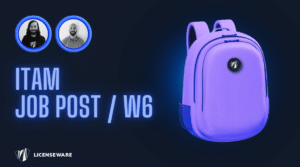How Kerala’s Schools Saved $360 Million by Swtching to Open Source

In the world of public sector IT, a savings of a few million dollars is considered a major victory. The southern Indian state of Kerala, however, has achieved something on a completely different scale. By systematically replacing proprietary software with a custom Linux-based operating system across its government schools, the state has realized an estimated cost avoidance of ₹3,000 crore, approximately $360 million USD.¹ This staggering figure is not just a testament to the economic power of free and open-source software (FOSS); it is a powerful case study in a growing global movement towards “digital sovereignty.”
The initiative, which began in the early 2000s under the “IT@School” project (now known as Kerala Infrastructure and Technology for Education, or KITE), involved a deliberate and phased migration of over 200,000 computers from proprietary systems to FOSS-based e.g. LibreOffice instead of Microsoft Office, GIMP/Krita software instead of Adobe Photoshop Premier, and Inkscape instead of Corel Draw are some of the alternatives.¹ The cost savings are primarily derived from avoiding the recurring licensing fees for Microsoft and Adobe suites, which would have been required for each of those machines over nearly two decades.¹
But for KITE, the project was about far more than just the bottom line. It was a strategic decision rooted in the principles of freedom, control, and empowerment. K. Anvar Sadath, the CEO of KITE, noted that a key benefit was the ability to customize and localize the software, including full support for the Malayalam language, ensuring technology was accessible to all students.¹ Furthermore, by providing students with FOSS, they were given the freedom to legally install, use, modify, and share the software at home, breaking down the digital divide and fostering a culture of technical curiosity that proprietary licenses often stifle.¹
A Growing Revolt Against Big Tech Dependency
Kerala’s journey is not an isolated incident but an early and powerful example of a global trend where public sector organizations are consciously uncoupling from their dependency on a handful of Big Tech vendors. This movement, often coalescing around the term “digital sovereignty,” is about regaining control over critical digital infrastructure, ensuring data privacy, and promoting long-term financial sustainability.
We are seeing this exact sentiment echo across Europe, where governments are increasingly viewing vendor lock-in as a strategic vulnerability. A prominent example is the northern German state of Schleswig-Holstein. In 2024, the state government announced a landmark decision to transition its 30,000 government employees away from Microsoft Windows and Office to open-source alternatives like LibreOffice and, eventually, a Linux-based OS.² Their motivations are a mirror image of Kerala’s: to enhance security, ensure transparency, and achieve “digital sovereignty” by breaking their reliance on a single, non-European vendor.² The German government sees this not as a simple IT project, but as a foundational step towards self-determination in the digital age.²
From Regional Action to National Strategy
This trend is scaling from regional implementation to national policy discussion. In Denmark, politicians are actively debating a national strategy to reduce dependency on Big Tech and promote the use of open standards and FOSS within the public sector.³ The core of the Danish argument is that reliance on proprietary, closed-source systems creates an unacceptable level of risk, ceding control over public data and infrastructure to foreign corporations.³ The push is for a future where public money is invested in public code, creating a shared, transparent, and more secure digital foundation for the country.³
These examples from Germany and Denmark, when viewed alongside Kerala’s long-running and successful program, paint a clear picture. The appeal of FOSS in the public sector has matured beyond a simple cost-saving calculation. It is now a strategic imperative. The “free” in free software is not just about price; it is about the freedom to choose, the freedom to customize, the freedom from punitive audits, and the freedom to control one’s own digital destiny.
Kerala’s $360 million dividend is the financial proof of the model’s success. But the true value lies in the lessons it offers to governments worldwide: that a commitment to open-source software is an investment in a more resilient, independent, and financially sustainable digital future.
Sources
- The News Minute, How switching to Linux-based free OS is saving Kerala govt schools Rs 3000 crore (May 14, 2019) https://www.thenewsminute.com/kerala/how-switching-linux-based-free-os-saving-kerala-govt-schools-rs-3000-crore-101844
- Licenseware, From Microsoft to Open Source: How One German State is Rewriting the Rules of Public-Sector IT (2024) https://licenseware.io/from-microsoft-to-open-source-how-one-german-state-is-rewriting-the-rules-of-public-sector-it/
- Licenseware, Denmark’s Digital Declaration of Independence: A Growing European Revolt Against Big Tech Dependency (2024) https://licenseware.io/denmarks-digital-declaration-of-independence-a-growing-european-revolt-against-big-tech-dependency/










